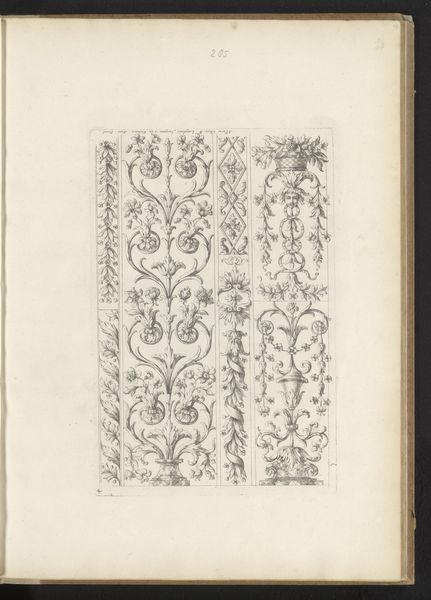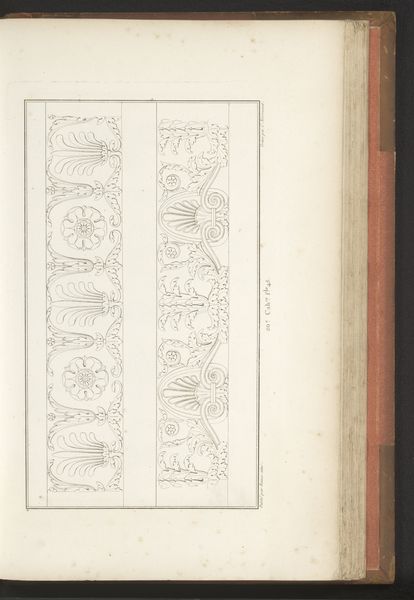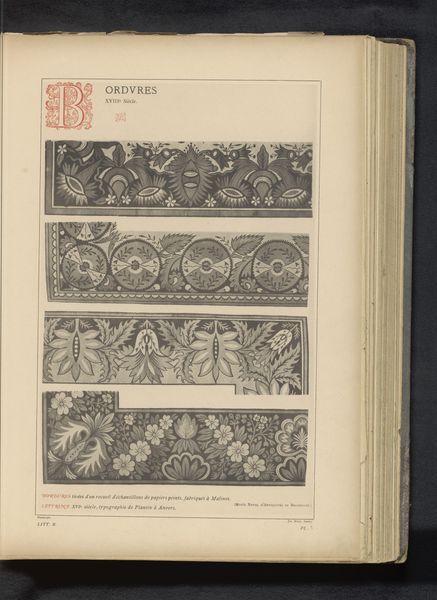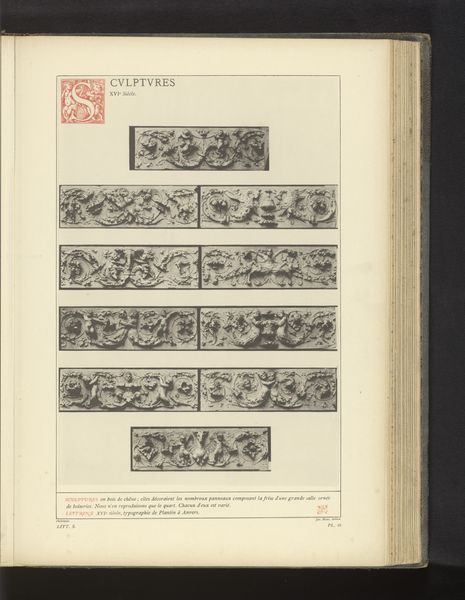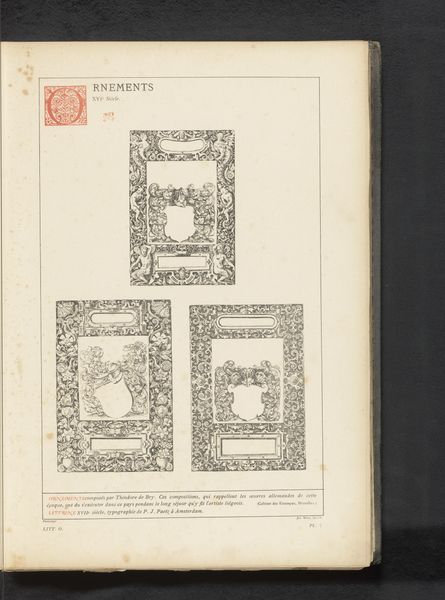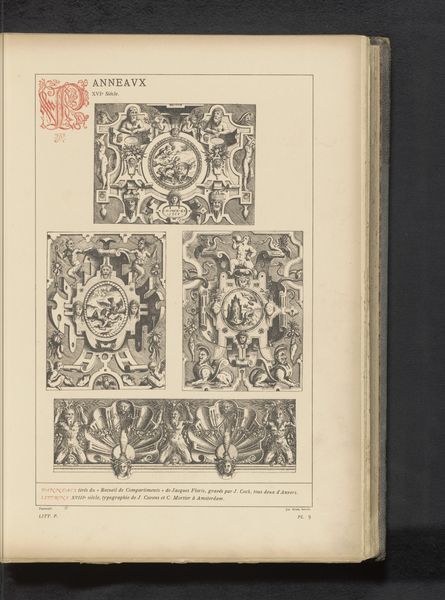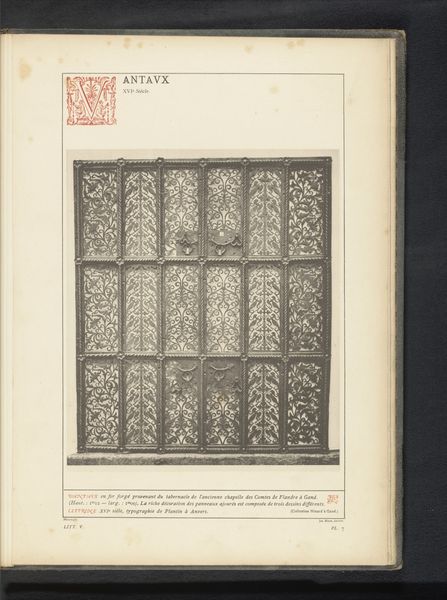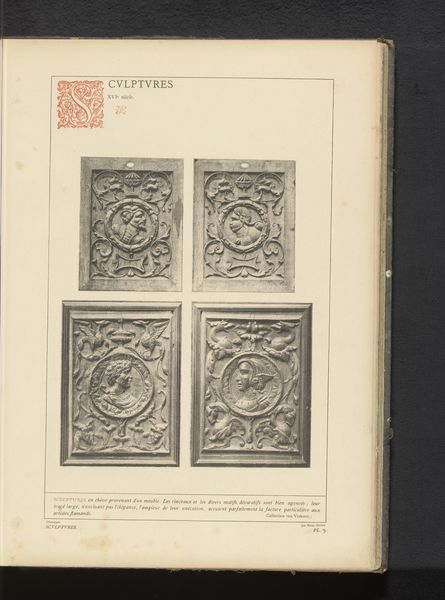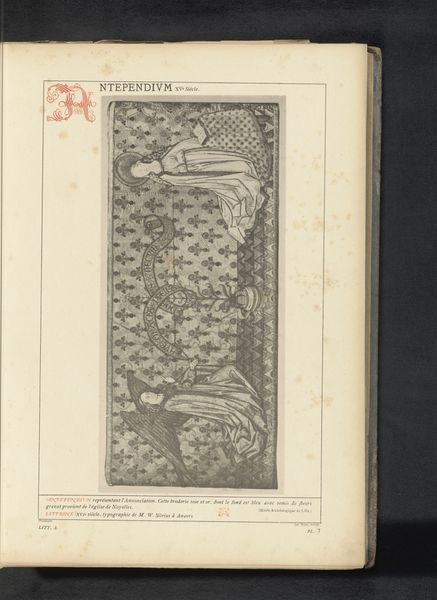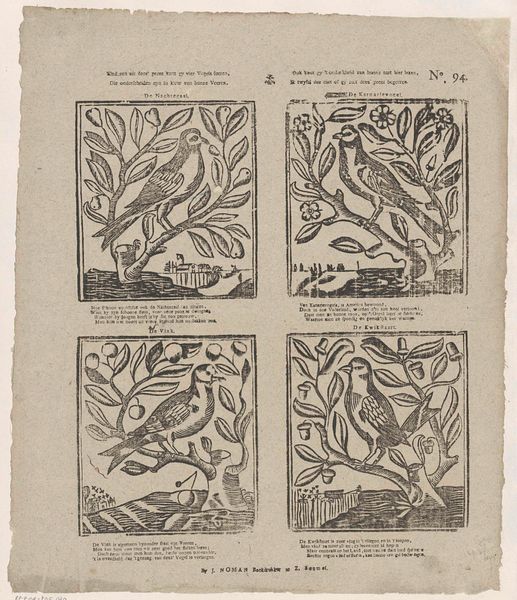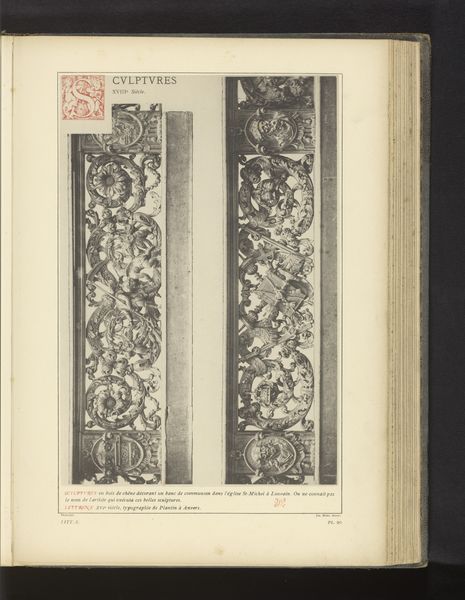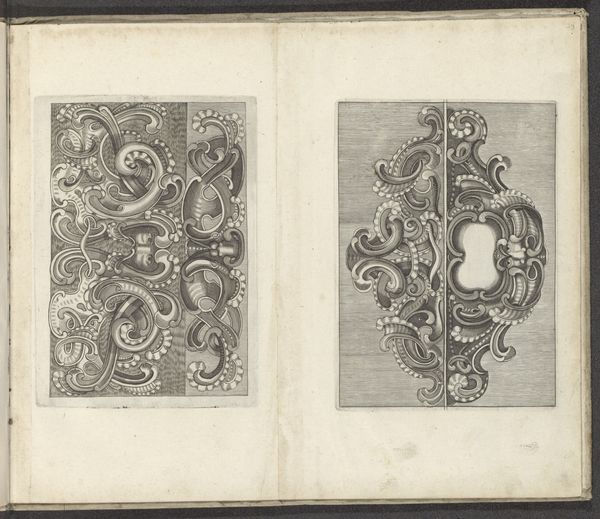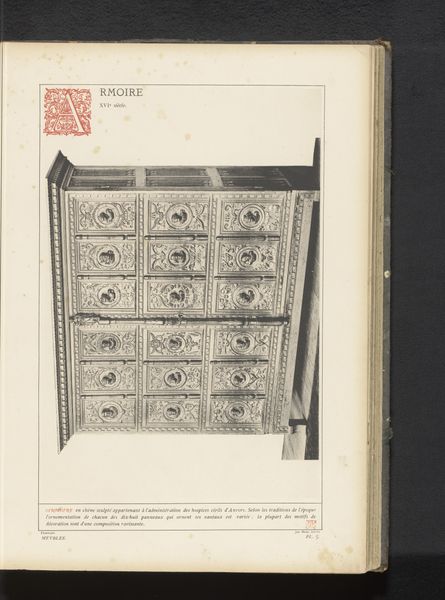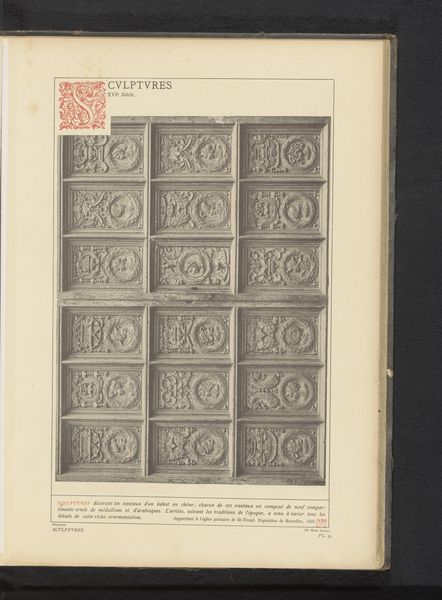
Twee delen van een eikenhouten balustrade uit een voormalig hotel in Antwerpen, België, ontworpen door Dominique de Waghemakere before 1887
0:00
0:00
drawing, print, pencil, wood, architecture
#
drawing
# print
#
form
#
geometric
#
pencil
#
line
#
wood
#
decorative-art
#
architecture
Dimensions: height 293 mm, width 225 mm
Copyright: Rijks Museum: Open Domain
These fragments of an oak balustrade were once part of a hotel in Antwerp, Belgium, designed by Dominique de Waghemakere. Look closely and you can see the hand of the maker in the intricate latticework, carved with patience and skill. Oak, a sturdy and noble material, was a popular choice for architectural elements. Its inherent strength allowed for the creation of detailed openwork like this, which would have added an element of elegance and refinement to the hotel's interior. Balustrades like these were not just functional; they were symbols of status and taste. Their production would have involved the expertise of skilled woodworkers, whose labor contributed to the overall aesthetic of the building. Consider the time and effort required to transform raw timber into these delicate forms, each cut reflecting the aesthetic sensibilities of the designer and the craftsmanship of the maker. By appreciating the materials, making, and social context of this balustrade, we can gain a deeper understanding of its historical and cultural significance, and challenge distinctions between fine art and craft.
Comments
No comments
Be the first to comment and join the conversation on the ultimate creative platform.
